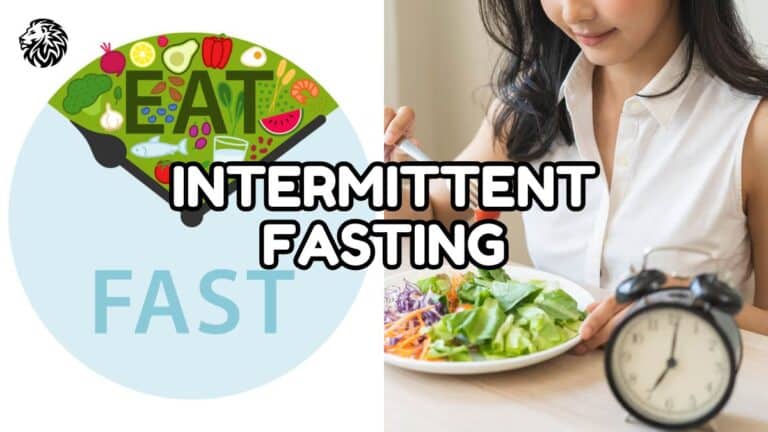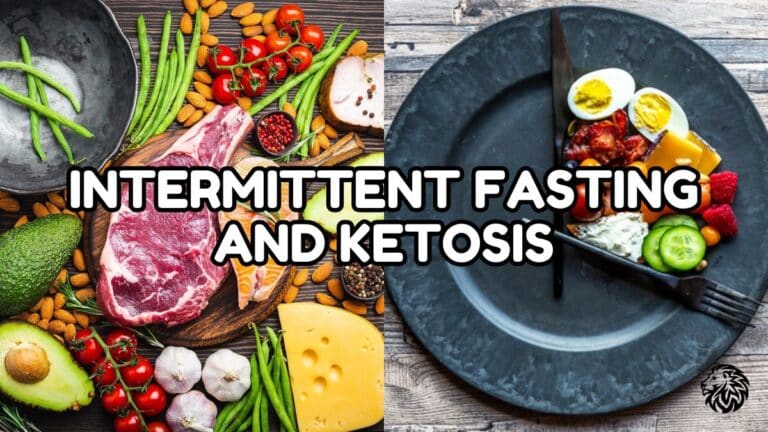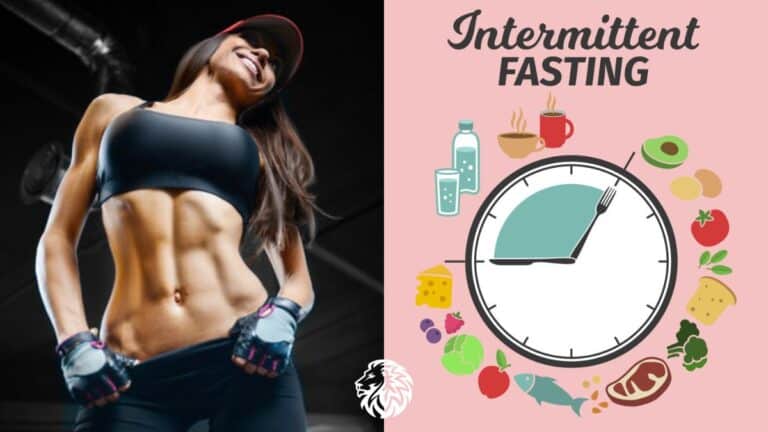Benefits of Intermittent Fasting
Dipping your toes into intermittent fasting? Let’s weigh up the upsides, so you can figure out if it’s your jam for health and self-care goals. Here’s the lowdown:
Weight Loss and Fat Reduction
Fancy dropping a few pounds or busting some belly fat? Intermittent fasting might just be your trusty steed. By sticking to specific eating times, your body starts burning fat like a log on fire. Folks following this routine shave off about 9% of their weight in just 3 months. Not bad, huh? Perfect news if you’re on a mission to fit into those old jeans!
Curious about how it stacks up for weight loss? Head over to our piece on intermittent fasting for weight loss.
| Timeframe | Average Weight Loss (%) |
|---|---|
| 12 Weeks | 9% |
Lowering Diabetes Risk
Here’s the scoop: intermittent fasting also has a knack for cutting down your chances of getting type 2 diabetes. How? It helps chill out insulin resistance and keeps your blood sugar levels behaved. It’s like giving a nudge in the right direction to dodge this tricky condition.
Want to know how it helps tackle blood sugar? Journey to our intermittent fasting and blood sugar page for more scoop.
Reducing Inflammation and Oxidative Stress
You know what’s not fun? Inflammation and oxidative stress—they’re like aging and disease BFFs. But fasting can cool them down. With regular fasting, your body gets into a groove of better cell repair and fights off those pesky free radicals.
Need the nitty-gritty on this? Peek at our intermittent fasting and inflammation article.
Summary of Benefits
Intermittent fasting can:
- Help you lose weight and trim fat
- Cut down the risk of type 2 diabetes
- Slash inflammation and oxidative stress
These benefits might just make it your new best buddy if you’re thinking of jumping on the fasting train. For the whole shebang on how to kick off, swing by our intermittent fasting methods page to find your go-to style.
If you’re itching to get started, check out our go-to guide on intermittent fasting for beginners.
Different Methods of Intermittent Fasting
So, you’re curious about intermittent fasting? Let’s break down some of the popular ways to do it: 12-hour fasting, the 16:8 method, the 5:2 diet, alternate day fasting, and the Warrior Diet. Grab a snack—or maybe not—and let’s get into it.
12-Hour Fasting
The 12-hour fasting routine is like a trampoline with training wheels. Easy, right? You go without food for half the day, which sounds a bit like skipping a midnight fridge raid. Most of the hunger pangs are snoozed off. During this time, your body starts turning fat into energy, releasing those buzzword molecules, ketones, which sounds fancier than it feels and could help with weight loss.
| What? | Deets |
|---|---|
| Skip Food | 12 hours |
| Yeet Food | 12 hours |
| Difficulty | Baby level |
| Perks | Simple to stick with, potential fat shredder |
16:8 Method
Next up, the 16:8 method, also known as the “watch me skip breakfast and lose weight” plan. You fast for 16 hours, basically miss out on breakfast tacos, and then munch within an 8-hour window. It’s a handy method for keeping weight in check, especially if you’ve got more to lose than your car keys. You’d usually wrap up dinner by 8 p.m., and your next meal’s at noon. Easy, right?
| What? | Deets |
|---|---|
| Skip Food | 16 hours |
| Yeet Food | 8 hours |
| Difficulty | Middle of the pack |
| Perks | Weight control, munch-friendly schedule |
5:2 Diet
Now, the 5:2 diet is like that friend who’s low-key unpredictable. You eat like a king five days a week, then play calorie count magician for the other two days—think 600 calories for dudes and 500 for gals. Flexible, but the proof of its success is still out there somewhere looking for a ride.
| What? | Deets |
|---|---|
| Snack Days | 5 |
| Calorie Crazy Days | 2 |
| Difficulty | Medium level vibes |
| Perks | Eat normal most of the time, not too strict |
Alternate Day Fasting
Alternate day fasting is the daredevil cousin you weren’t quite ready for. You don’t snack every other day, though some versions let you squeezer in up to 500 calories. Feels like a tough cookie to crack, so it’s not for the faint-hearted or those without doctor nods.
| What? | Deets |
|---|---|
| Fast Days | Every other one |
| Feast Days | One in between |
| Difficulty | Hard mode |
| Perks | Fast track weight loss, not for beginners |
Warrior Diet
Then there’s the Warrior Diet, and it’s living up to its name. You fast for 20 hours and feast like it’s Thanksgiving during the remaining four. Supposedly vibes with our nocturnal appetites. Stick with it if you’re tough; otherwise, the struggle’s real, and nutrient nosedives can happen.
| What? | Deets |
|---|---|
| Skip Food | 20 hours |
| Yeet Food | 4 hours |
| Difficulty | Maximum hard |
| Perks | Matches up with our night owl nature, but tough to keep at it |
Each of these has its flair and catch. Picking one might feel like a dating game—some trial, some doctor talks, all the lifestyle pondering. Get the lowdown through our intermittent fasting schedule if you’re sizing up times, and check some killer tips if you need the inside scoop.
Tips for Successful Intermittent Fasting
Jumping into intermittent fasting can be a rollercoaster—thrilling and tricky at the same time. Let’s make it easier with some cool and doable tips.
Take it Easy
Think of this as dipping your toes in the water. Don’t leap into shrinking your meal times too fast. Start by shortening the time you munch gradually over a few months. This gives your body a chance to catch up with your plans and ditch any negative vibes of a sudden shift. For a detailed game plan on starting your fast, pop over to our guide on intermittent fasting for beginners.
Keep the H2O Flowing
Water is your fasting buddy. Chug enough of it to keep things running smoothly in your system and to fend off those pesky hunger growls. Tea and black coffee are cool options too, but steer clear of sugary stuff that can mess with your fast. Looking to quench more curiosity on staying hydrated? Check out intermittent fasting and hydration.
Tune Into Your Body
Your body has a lot to say, so listen up. If you start feeling woozy, dog-tired, or extra cranky, maybe it’s time to rethink your fasting groove. Fasting doesn’t come in one shape or size, so find what fits you and check in with health pros if you’re on the fence. For more clues on picking the right path, read up on intermittent fasting methods.
Eat Smart
When your fasting window closes, it’s easy to want to gobble down everything in sight, especially the not-so-healthy stuff. Stick to chowing down on meals that are stocked with the good stuff. Mix in fruits, veggies, lean meats, and grains to keep your body fueled. For more of this foodie wisdom, take a peek at our intermittent fasting meal plans.
| Nutrient | Food Examples |
|---|---|
| Proteins | Chicken, Fish, Beans |
| Carbohydrates | Quinoa, Brown Rice, Oats |
| Fats | Avocado, Nuts, Olive Oil |
| Vitamins | Fruits, Vegetables |
There you have it—some handy pointers to make intermittent fasting a breeze in your life. For extra nuggets of fasting wisdom, check out our pages on intermittent fasting transformations and intermittent fasting benefits.
Potential Side Effects of Intermittent Fasting
Intermittent fasting’s gaining popularity for its supposed health perks, but like everything else, it’s got its hiccups. Before you dive headfirst into those meal-free hours, let’s chat about a few bumps you might hit along the way.
Mood Swings and Hunger Pangs
When you’re skipping meals like a pro, mood swings and the munchies might tag along for the ride. Your blood sugar’s playing roller coaster, which can bring on the cranky pants and jitters, especially when you’re starting out. Give yourself a break; maybe try easing in with a more chill fasting plan. Our intermittent fasting guide for beginners has some neat tips to keep you on track without losing your mind (or friends).
Headaches and Fatigue
Starting out, headaches and that sluggish feeling might crop up. Imagine your body’s little protest parade, caused by sugar level dips and not enough hydration. No worries though, keeping up with the agua and a balanced bite can kick those to the curb. For some nifty tips on keeping your nutrients on point, swing by our fasting and supplement advice.
| What Might Get You | What’s Going On |
|---|---|
| Headaches | Usually pop up when your blood sugar’s playing hard to get. |
| Fatigue | The result of low energy and missing electrolytes. |
Disrupted Sleep Patterns
Skipping meals or eating late dinners can mess with your zzz’s, and that’s no fun. Your body’s like, “What gives?” If bedtime seems trickier than it should be, maybe shift your fasting hours around to see what fits your rhythm. If you’re curious for more snooze-friendly tips, check out our take on fasting meal plans.
Knowing what to expect and how to deal with it keeps you ahead of the game when it comes to fasting. Loads more tips and info on fasting side effects and handling them are just a click away on our site right here.
Precautions and Considerations
Sure, intermittent fasting can slim you down and up your metabolic game, but let’s get real— there are a few things to watch out for to keep it on the up-and-up.
Chat With Your Doctor First
Before you throw yourself into the fasting scene, have a chinwag with your doc. This goes double if you’ve got stuff like diabetes, heart niggles, or other health bits that don’t play along nicely. Word on the street from Johns Hopkins Medicine is that certain folks should sit the fasting fad out entirely. And if you’re popping meds for blood pressure or heart stuff, fasting could mess up your mineral mojo, says Harvard Health Publishing. A professional chat ensures whatever fasting flavor you go for matches your health vibe.
Women and Health Woes
Ladies, hold up, fasting might play a little different for you. Some studies toss around that it might mess with your hormones or cause you to skip Aunt Flo’s visit. However, it’s not all bad news—IF has potential upsides for those dealing with PCOS (Healthline). If you wanna give it a go, loop in your health guru to get a plan that’s got your back.
Got some health quirks? Play it smart. Diabetes minds, keep an eye on those sugar dips. Plus, anyone who harbors any fasting aspirations should clue up on its side gigs—expect mood swings, belly grumbles, and maybe a hiccup in your sleep this link (Healthline).
Got the itch to dig deeper? Check out our hot takes on intermittent fasting methods and schedules.
| Health Checkpoint | What to Do |
|---|---|
| Underlying Issues | Have a healthcare huddle |
| Hormonal Concerns | Call in the medical cavalry |
| Medication Patrol | Keep an eye on minerals |
| General Stuff (moods, hunger) | Ease into it and stay alert |
Staying smart about these things can let you milk the goodness without falling into a fasting funk. Want more pro tips and juicy intermittent fasting perks? Dive into our handy guides.
Intermittent Fasting for Cardiovascular Health
Thinking about getting your heart in shape through intermittent fasting? Let’s chat about how this method can impact your ticker and what you should keep in mind when fasting.
Time-Restricted Eating Window
Time-restricted eating means munching on your snacks within certain hours each day. Think of it like setting a timer for your snack fest. You might go for an 8-hour munching spree, followed by 16 hours of fasting. That’s a favorite for many, called the 16:8 routine.
But here’s the thing—according to the American Heart Association, folks on an 8-hour window might have a bump in the risk of heart-related deaths compared to those who enjoy their meals over a more spread-out 12-16 hour window.
On the flip side, some research suggests time-restricted munching can help with:
- Lowering blood pressure (good for the heart!)
- Keeping blood sugar in check
- Managing cholesterol levels
The right eating schedule can potentially do your heart a favor if it suits your daily groove.
Eating Windows and Cardiovascular Health:
| Time Window | Heart Impact |
|---|---|
| 4-Hour Window | Might not get all the nutrients you need |
| 8-Hour Window | Possibly a 91% higher heart risk per American Heart Association |
| 12-16 Hour Window | Better balanced eating, possibly safer |
For help in choosing your eating window, it’s a smart move to chat with a healthcare pro.
Risks of Prolonged Fasting Periods
Intermittent fasting isn’t all sunshine and rainbows. Going overboard with fasting can put your heart in a tricky spot. The American Heart Association found through some hefty data analysis that longer fasting could spell trouble.
Folks fasting for longer can end up with:
- Nutritional gaps (bad news for your heart)
- Higher chances of heart trouble
The trick is to keep your fasting balanced, making sure you’re getting the good stuff your body needs. Skipping out on nutrients during super-long fasts? Not great for heart or body health.
Want to explore more about handling fasting risks? Check our guide on intermittent fasting risks.
Before jumping into an intermittent fasting plan, have a quick chat with your doc. Make sure it fits with your health aims. Curious about the upside and more tips? Take a peek at intermittent fasting benefits.







